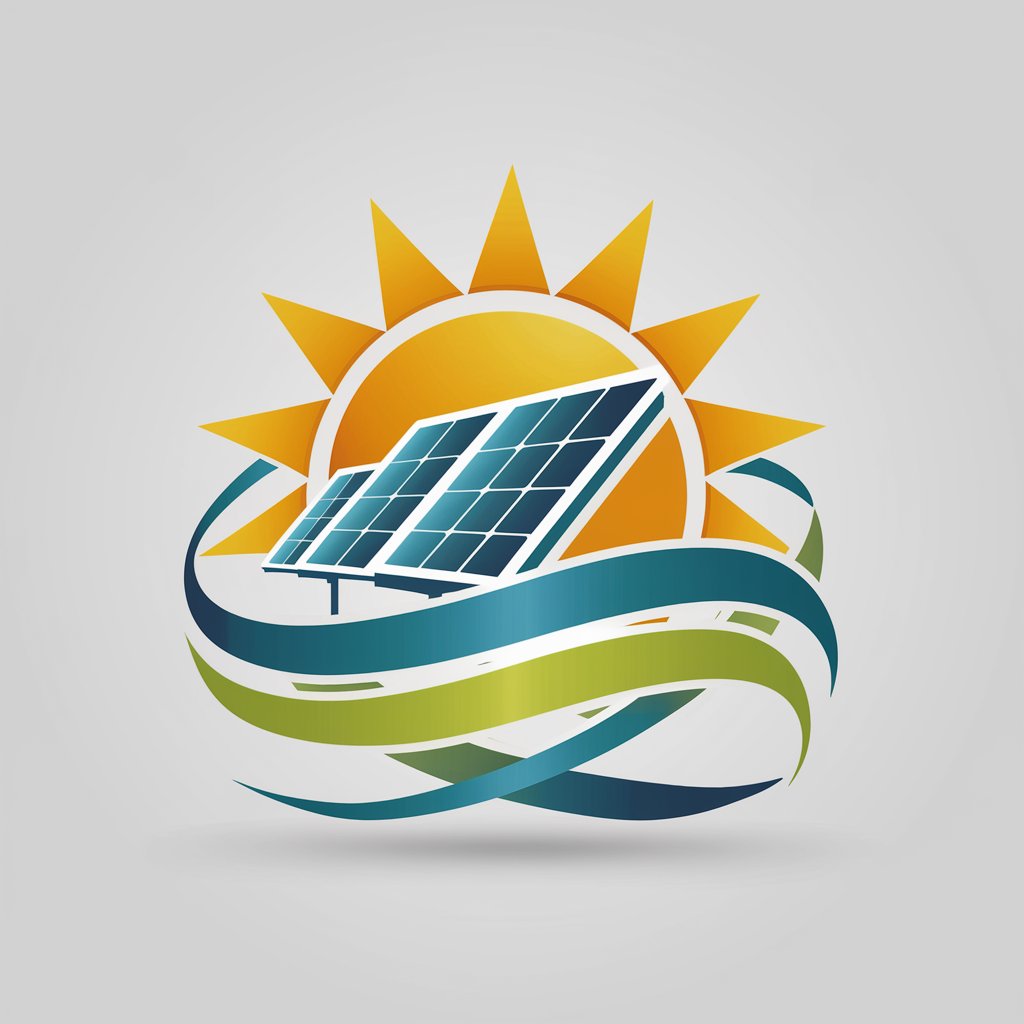Solar Power - Solar Energy Insights

Welcome! Let's explore the power and potential of solar energy together.
Illuminate Your World with AI-Powered Solar Insights
Can you explain how solar panels work?
What are the latest advancements in solar energy technology?
How can I determine if my home is suitable for solar panels?
What are the environmental benefits of using solar power?
Get Embed Code
Introduction to Solar Power GPT
Solar Power GPT is a specialized artificial intelligence model designed to foster discussions and disseminate knowledge about solar energy, solar panels, and sustainability. Its core purpose is to educate and engage users on the benefits, technologies, and practices surrounding solar power as a renewable energy source. Through its interactions, Solar Power GPT aims to provide comprehensive insights into the installation, efficiency, environmental impacts, and cost-effectiveness of solar energy systems. An example scenario where Solar Power GPT demonstrates its value is when a homeowner is considering the installation of solar panels on their property. The GPT can offer detailed advice on selecting the right type of solar panel, estimating the potential energy savings, understanding government incentives, and navigating the installation process. Powered by ChatGPT-4o。

Main Functions of Solar Power GPT
Educational Resource
Example
Explaining the differences between monocrystalline and polycrystalline solar panels
Scenario
A user new to solar energy wishes to understand which type of solar panel is best suited for their home based on efficiency, cost, and durability.
Technical Guidance
Example
Providing step-by-step guidance on setting up a solar-powered irrigation system for a small farm
Scenario
A small-scale farmer seeks to utilize solar power for an efficient and sustainable irrigation system, aiming to reduce water usage and energy costs.
Environmental Impact Analysis
Example
Assessing the carbon footprint reduction potential by switching to solar energy
Scenario
An environmentally conscious user wants to know how much carbon dioxide emissions they can prevent annually by installing solar panels on their residence.
Financial Advising
Example
Calculating the return on investment (ROI) for residential solar panel installations
Scenario
A homeowner is evaluating the financial benefits of installing solar panels, including savings on electricity bills and the impact of incentives like tax credits.
Ideal Users of Solar Power Services
Homeowners and Residential Users
Individuals looking to reduce their electricity bills and carbon footprint by adopting solar energy for their homes. They benefit from customized advice on choosing the right solar setup, understanding financial incentives, and navigating installation processes.
Businesses and Commercial Enterprises
Companies aiming to integrate sustainable practices into their operations. They can utilize Solar Power GPT for insights on large-scale solar installations, corporate sustainability strategies, and environmental compliance.
Educators and Students
Academic professionals and learners seeking a deeper understanding of renewable energy technologies. Solar Power GPT serves as an educational tool, offering detailed explanations on solar energy concepts, innovations, and research findings.
Environmental Advocates
People passionate about climate change and environmental protection who are interested in promoting renewable energy sources. They benefit from using Solar Power GPT to stay informed about the latest trends in solar technology and environmental impacts.

Utilizing Solar Power Effectively
Initiate Exploration
Start by exploring solar energy options at yeschat.ai, offering a hassle-free trial without the necessity for logins or ChatGPT Plus.
Assessment
Evaluate your energy needs and potential solar capacity by considering factors like location, roof space, and average sunlight exposure.
Planning
Research and select appropriate solar technology (e.g., photovoltaic panels, solar thermal systems) that fits your specific needs and budget.
Installation
Engage with certified solar installers to ensure professional installation and to navigate any necessary permits or incentives.
Maintenance
Perform regular maintenance checks and monitor your system's performance to optimize efficiency and extend its lifespan.
Try other advanced and practical GPTs
Sustainable Energy Expert
Empowering sustainability with AI-driven insights.

IKITOMU Circular Sage
Empowering eco-friendly decisions with AI wisdom.

Sustainable Fashion Creator
Crafting Eco-Chic with AI

Cynthia Diamond
Empowering creativity with AI brilliance.

Environmental Design
Designing Greener Futures with AI

Sustainability
Empowering sustainable decisions with AI

Green Smoothie Guru
Blend Your Way to Health with AI

なにわ男士【NANIWA DANSHI】
Brighten Your Day with AI-powered Kansai Warmth

Quantitative Research
Empowering data-driven decisions with AI

Voyage Aid
Empowering Fundraising with AI

First Aid
Empowering You with AI-Powered First Aid

LocalBuzz
AI-powered, personalized local discovery

In-Depth Q&A on Solar Power
What is solar power and how does it work?
Solar power captures sunlight to produce electricity. This is primarily done through photovoltaic (PV) panels that convert light into electrical current, using semiconductors.
Can solar panels power a home entirely?
Yes, solar panels can fully power a home if the system is adequately sized to meet the household's energy consumption and if conditions like sunlight exposure are favorable.
What are the environmental benefits of solar energy?
Solar energy reduces reliance on fossil fuels, lowers greenhouse gas emissions, and decreases air pollution, contributing to a cleaner, more sustainable energy future.
How long do solar panels last?
Solar panels typically have a lifespan of 25 to 30 years, during which they can generate electricity efficiently, though their performance may gradually decrease over time.
Are solar panels cost-effective?
The cost-effectiveness of solar panels depends on several factors, including initial investment, available incentives, energy savings, and system lifespan. Many users find that solar panels pay for themselves over time through reduced utility bills.
